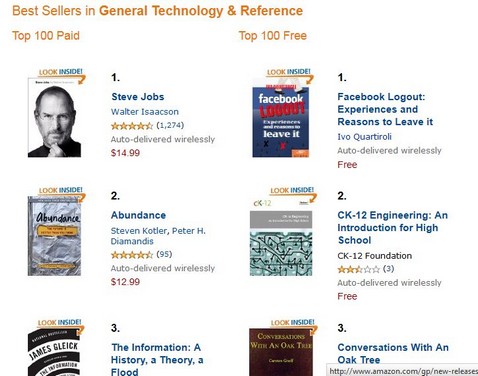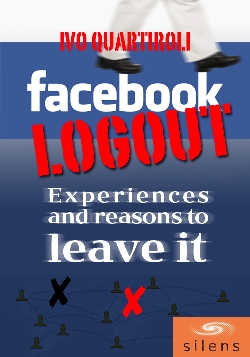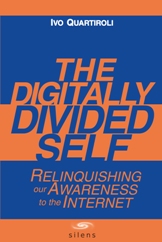excerpt from Chapter 4 of “The Digitally Divided Self : Relinquishing our Awareness to the Internet“
The technological society increasingly permeates more segments of our life. Social connections, finance, work, research, news, dating, entertainment, shopping are some of the activities that have moved massively to the Net. These call out different qualities of our soul that have functioned in vastly different external settings.
Our inner attitude shifts as we work, shop, talk to a friend, or communicating with someone we are intimately attracted to. Different archetypes, muses, and aspects of our psyche activate us as we move from offices and laboratories to homes, nature, shops, and beds.
As different parts of ourself are drawn on, inner qualities, mind, and body can remain integrated. However, when we engage in this variety of activities in front of a screen, our setting is constant – and our mind utilizes a limited set of skills (speed, efficiency, rationality), while our body remains mostly in the background.
Regardless of what we are doing online, we use predominantly the same mind channels to interact with the computer, and there is no substantial difference whether we operate on Windows, Mac or Linux. Using the same modality for dating, shopping, communicating with friends, sexual arousal and scientific research impoverishes most of these activities.
Separation of the immortal mind from the mortal body by religions and philosophies formed the basis for representing intelligence and life in digital terms. Despite our neurophysiology telling us that our reason is embodied, this separation goes on. Our mind can’t function separated from our body. There is no “pure mind.” Concepts and reason are as much embodied processes as the digestion of food.
Yet because of the separation, how we interact with the computer is fertile territory for psychological ego defense mechanisms – in particular rationalization, dissociation, and splitting. These defenses are activated when the ego is feeling threatened – and are a protection against the re-emergence of the irrational states experienced during adolescence and difficult stages of adult life (Zanarini, 1985). Digital media can reassure us with their (supposed) predictability – we can feel in charge of a situation with just a click or a touch to the screen.
Mathematicians, engineers, logicians, and philosophers have all contributed to understanding the mind in terms of its mechanical operation. George Boole, Charles Babbage, Ada Lovelace, and Bertrand Russell created the bases for representing the thinking process in such mathematical terms that it could be replicated by a machine. Postman (1997) looking at Babbage’s realization of mechanically manipulating non-numeric symbols, compared it to the third century Greek discovery that each letter of the alphabet had not only a unique sound, but that they could be grouped together into written words. They could then be used for the classification, storage and retrieval of information.
Measurements and numbers are the essential components of the digitization of reality. The philosopher Comte, the father of positivism, regarded anything which could not be measured as unreal. Measurement of matter could be applied to human beings, establishing an equivalence between people and objects. Without numbers and quantitative values, the “exact” sciences would be lost – but so, then, would the humanistic disciplines like sociology and psychology.
We grade students with numbers (or substitutes for numbers). We calculate intelligence with an IQ index. Most of medical science is about numerical values related to physiological parameters. I recently saw an advertisement for a toothbrush bragging that it “enters 50% deeper between teeth and removes 25% more bacteria.” That information – numeric – we can trust.
Consciousness, however, cannot be measured – much less any subjective inner state or ethical behavior. Thus human values lie beyond the purview of the information society. Magatti (2009) concluded that in techno-functional systems, the world is seen as a calculable objectivity, and its measurement is equivalent to truth. This way a chronic discrepancy has been created – in that whatever is outside technical modalities, like non-scientific language, can never be elevated to “real” or “truth.”
Paradoxically, calculations and mathematical models of reality – considered the ultimate objectivity and understanding of reality – create, instead, space for illusion and unreality. Building models of reality based on the manipulation of data detached from the organic, ethical and spiritual levels, can easily create models which only apparently match what is authentic. One example is the financial bubble which continued inflating, with few people warning about its divergence from the reality of true value.
Rationality itself, efficient in manipulating views and data to stake a logical claim, can deceive us as much as irrationality.
Data is King
The power of data is manifest in the massive data centers that major IT companies have built. Google, Microsoft, Amazon, Yahoo, Facebook, all have hundreds of thousands of servers, working in parallel and managing huge volumes of data on the order of petabytes (a million billion bytes). (Those data centers, which allow us to work more efficiently, coincidentally consume increasing amounts of energy, despite more efficient microprocessors.)
Chris Anderson (2008), in an article for Wired, wrote that with the amount of information available for processing nowadays, theory and models are no longer needed to make sense of the world – statistics and mathematical analysis are enough. He points specifically to Google, which does not fret about models. Peter Norvig, Google’s research director, said it clearly: “All models are wrong, and increasingly you can succeed without them.”
This attitude appeals both to people who perceive the limits of models and even paradigms, as well as to people who just don’t care about models and complex thought. Models have been mauled in the last century and certainties have been demolished by both philosophers and quantum scientists, so that we are losing the ground beneath our feet.
The last centuries have seen the melting of our accurately-erected certainties. From Kant, who saw the limits of the mind in understanding the “thing in itself,” through Gödel’s incompleteness theorems, which demonstrated the inherent limitations in formal systems, to Heisenberg’s uncertainty principle, we have been thrown into doubt about the possibility of knowing physical reality. This is what Edgar Morin (1986) meant about there being no certainty base, no founding truth – that the very idea of a foundation is collapsing along with the idea of ultimate analysis, ultimate cause, and primary explanation. The terrain we are left to live in is data. Looking for truth, on the other hand, is both an inner activity for our soul and an outer exploration of external and objective – historical and psychological – material.
Even though we cannot arrive at the ultimate truth through models created by the mind, we can reach ever-more refined approximations of truth. However, Anderson pointed out the impossibility of using the scientific method with such enormous quantities of data available. Hypothesizing, experimenting, and data analysis are now unwieldy. His attitude means that what works is being promoted as “true.” Yet it is consciousness that gives meaning to information.
In fact, giving data so much importance is its own ideological model, born from the belief that through digital data we can understand, reproduce, and process reality. The way IT companies organize and interpret data is also a model in itself. In Postman’s (1993) opinion, though Technopoly’s experts are experts only in their specialized fields, they still claim knowledge of all other matters as well. When data is allowed to rule, it can be regarded as a tool for understanding, and then acting upon, any aspect of our human canvas. It becomes a totalitarian model to which reality must be made to fit. So we find our culture in the situation, to use Postman’s example, where it is not enough to stand up for desegregating schools, but it must be proven with standard tests that reveal that segregated blacks score worse and feel humiliated.
Order The Digitally Divided Self on Amazon



